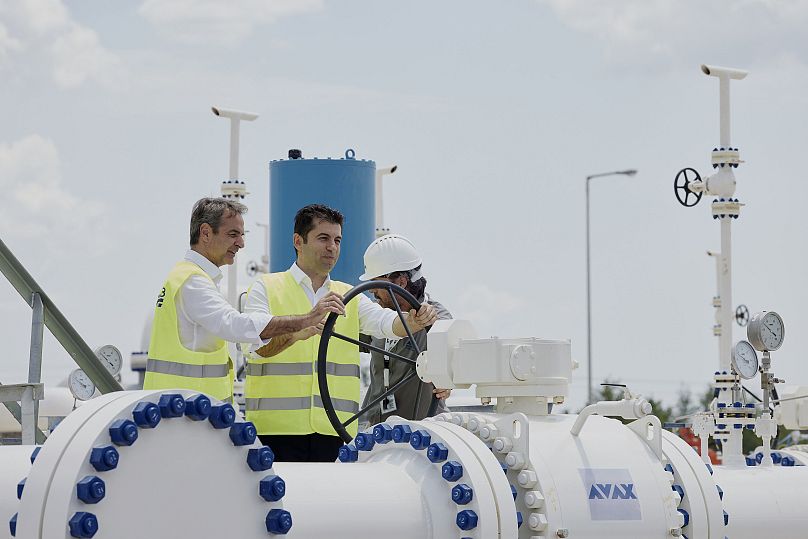The 182-kilometre pipeline from Azerbaijan will connect to the two neighbouring EU countries and reduce dependency on Russian gas.
The prime ministers of Bulgaria and Greece have officially opened a new gas pipeline to reduce dependence on Russia.
 ADVERTISEMENT
ADVERTISEMENT
 ADVERTISEMENT
ADVERTISEMENT
The 182-kilometre pipeline from Azerbaijan will connect to the two neighbouring EU countries between the northeastern Greek city of Komotini and Stara Zagora in central Bulgaria.
Bulgaria's vital supply of Russian gas was cut off in late April amid tensions over Russia’s invasion of Ukraine. Sofia had refused state company Gazprom's demand to pay gas bills in rubles.
The inauguration of this project "will go down in history," outgoing Bulgarian Prime Minister Kiril Petkov said on Friday.
The €220 million pipeline will have an initial capacity of 3 billion cubic metres of gas per year, potentially increasing to 5 billion cubic meters.
Greek Prime Minister Kyriakos Mitsotakis stressed the importance of the new link as the country seeks to become a regional energy transport hub. Athens hopes to use fossil fuels from the Caspian Sea and the southeastern Mediterranean -- as well as renewable energy from Egypt -- to supply the Balkans amid the Ukraine war.
“This isn’t just a gas pipeline, but a crucial south-north energy bridge,” Mitsotakis said during the ceremony in Komotini.
He added that Europe needs to coordinate its response to “Moscow’s conscious choice to turn natural resources into a lever of political pressure, into a raw blackmail.”
“It is something our Bulgarian neighbours already know very well,” Mitsotakis said.
Relations between Russia and Bulgaria further deteriorated after Sofia expelled 70 Russian diplomats last month.
The project to construct a gas pipeline between Bulgaria and Greece had begun in 2009, but construction only started in 2019.
Greece is also building a liquefied natural gas terminal off the northeastern port of Alexandroupolis, near Komotini, which Mitsotakis said would in the future provide additional gas for the new Greek-Bulgarian pipeline.
Commercial deliveries on the inaugurated pipeline are expected to start by October 1.











